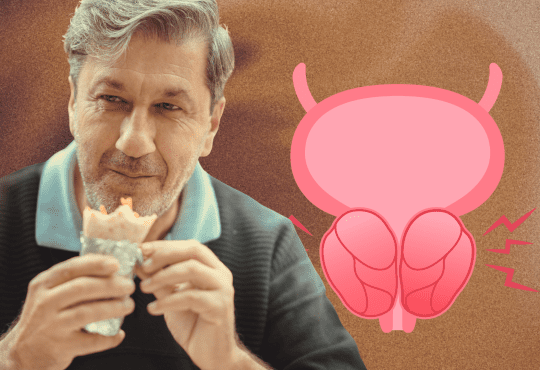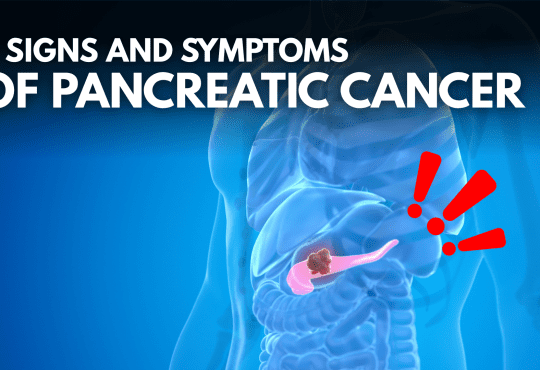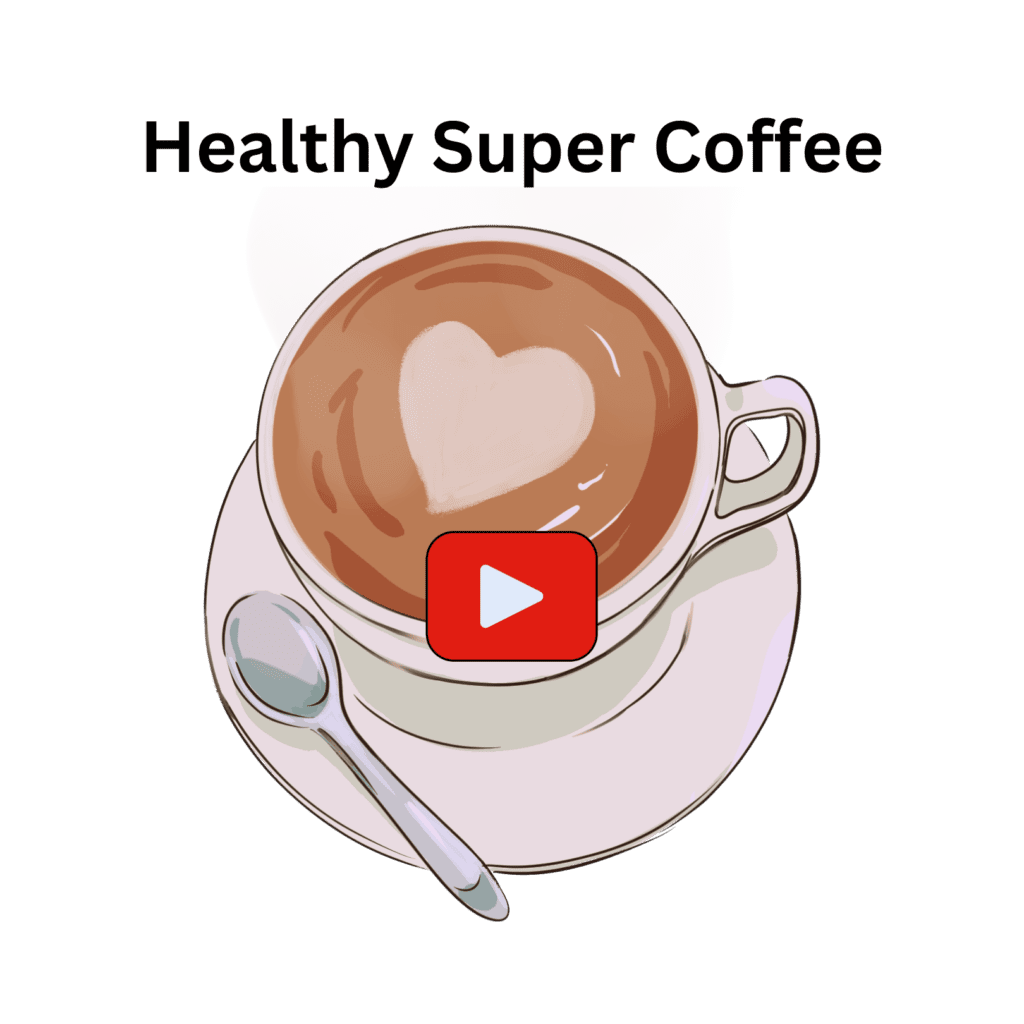
8 Worst Foods In The World – Avoid These To Prevent Cancer
In today’s fast-paced world, it’s crucial to prioritize our health, and making informed choices about the foods we consume is a key step in reducing the risk of cancer.
Cancer is a complex disease with various risk factors, including genetic predisposition, environmental factors, and lifestyle choices.
While we can’t control all the factors that contribute to cancer, we can certainly make conscious decisions about our diet to minimize the potential harm.
Today, we will uncover eight of the worst foods that have been strongly linked to an increased risk of cancer.
We will explore the scientific evidence behind their harmful effects and understand why they should be avoided to protect our health.
By shedding light on these food items, we hope to empower you with knowledge that can guide you towards healthier choices.
Remember, prevention is always better than cure, and making smart dietary decisions can significantly reduce the risk of cancer and promote overall well-being.
Now, let’s explore the eight worst foods you should avoid like the plague if you want to prevent cancer.
Your health deserves nothing less than your full attention, so let’s get started!
Number 8. Processed Meats.
Processed meats, such as hot dogs, sausages, and deli meats, have long been associated with an increased risk of colorectal and stomach cancers.
Numerous studies and research have consistently shown the harmful effects of consuming these meats on our health.
One of the primary concerns with processed meats is their high content of harmful additives and preservatives.
These additives, including nitrates and nitrites, are used to enhance flavor, color, and shelf life.
However, during the processing and cooking of these meats, these compounds can form potentially carcinogenic substances called nitrosamines.
Nitrosamines have been linked to the development of cancer, particularly in the digestive system.
A comprehensive study published in the International Journal of Cancer analyzed the data from numerous studies and found that the consumption of processed meats was associated with an increased risk of colorectal cancer.
Another meta-analysis published in the journal Gastroenterology confirmed the strong link between processed meat consumption and the risk of both colorectal and stomach cancers.
It’s important to note that the harmful effects of processed meats extend beyond cancer risk.
They are also linked to other health issues such as cardiovascular disease, high blood pressure, and obesity.
The World Health Organization (WHO) has classified processed meats as Group 1 carcinogens, placing them in the same category as tobacco smoking and asbestos.
To reduce your risk of cancer and promote overall health, it is advisable to limit or avoid the consumption of processed meats.
Instead, opt for healthier alternatives like lean cuts of unprocessed meats, poultry, fish, or plant-based protein sources like legumes, tofu, or tempeh.
These choices provide essential nutrients without the harmful additives and preservatives found in processed meats.
Number 7. Sugary Drinks.
Regular consumption of sugary beverages, including sodas, energy drinks, and fruit juices with added sugars, has become a major concern for public health.
These beverages not only contribute to weight gain and the development of chronic diseases but have also been linked to an increased risk of various cancers.
Numerous studies have demonstrated the association between sugary beverage consumption and cancer risk.
A large-scale study published in the British Medical Journal analyzed data from over 100,000 participants and found that higher intake of sugary drinks was associated with an increased risk of several types of cancer, including breast, pancreatic, and colorectal cancers.
Another study published in the journal Cancer Epidemiology, Biomarkers & Prevention highlighted the link between sugary beverage consumption and increased pancreatic cancer risk.
The harmful effects of sugary beverages on cancer risk can be attributed to multiple factors.
Firstly, these drinks are high in added sugars, providing excessive amounts of calories without any significant nutritional value.
Regular consumption of sugary beverages contributes to weight gain and obesity, which is a well-established risk factor for various cancers.
Additionally, the high sugar content in these drinks can lead to chronic inflammation in the body, promoting cancer development and progression.
It is essential to be aware of the hidden sugars present in many beverages, including fruit juices.
While fruit juices may seem like a healthier option, they often contain high amounts of added sugars, negating the potential benefits of the natural fruit sugars and fiber.
Opting for whole fruits or freshly squeezed juices without added sugars is a better choice to satisfy your thirst and support overall health.
To reduce your cancer risk and improve your overall well-being, it is advisable to limit or avoid the consumption of sugary beverages.
Instead, choose healthier alternatives such as water, herbal tea, or infused water with fresh fruits and herbs.
These options not only hydrate your body but also provide essential nutrients without the detrimental effects of added sugars.
Number 6. Fried Foods.
Indulging in fried foods may be tempting, but it’s important to be aware of the potential health risks associated with their consumption.
Fried foods, especially when cooked in unhealthy oils at high temperatures, can lead to the formation of harmful chemicals such as acrylamides and polycyclic aromatic hydrocarbons (PAHs).
Numerous studies have highlighted the carcinogenic properties of these chemicals.
Acrylamides, which are formed when starchy foods are cooked at high temperatures, have been classified as a probable human carcinogen by the International Agency for Research on Cancer (IARC).
PAHs, on the other hand, are produced when foods are cooked at high temperatures, such as during frying or grilling, and have been linked to the development of various types of cancer.
Research has shown that a diet high in fried foods is associated with an increased risk of lung, prostate, and breast cancers.
A large-scale study published in the journal Cancer Epidemiology, Biomarkers & Prevention found that frequent consumption of fried foods was associated with a higher risk of lung and prostate cancers.
Another study published in the Journal of the National Cancer Institute revealed that higher consumption of fried foods was associated with an increased risk of breast cancer in postmenopausal women.
The harmful effects of fried foods on cancer risk can be attributed to the formation of acrylamides and PAHs during the cooking process.
These chemicals have been shown to induce DNA damage, promote inflammation, and disrupt normal cellular processes, all of which can contribute to the development and progression of cancer.
To reduce your risk of cancer, it is advisable to limit your intake of fried foods.
Instead, opt for healthier cooking methods such as baking, grilling, steaming, or sautéing with minimal oil.
Choose healthier oils such as olive oil or avocado oil when frying or cooking at high temperatures, as these oils have a higher smoke point and are less likely to form harmful compounds.
Number 5. Highly Processed Snacks.
When it comes to snack time, it’s important to be mindful of the choices we make.
Snack foods like chips, crackers, and cookies that are heavily processed and loaded with unhealthy fats, artificial flavors, and preservatives may satisfy our cravings momentarily, but they offer little in terms of nutritional value and can have negative impacts on our health.
These snack foods are often high in unhealthy fats, such as trans fats and saturated fats, which have been linked to an increased risk of various types of cancer.
Studies have shown that diets high in saturated fats can promote inflammation, disrupt hormone balance, and contribute to the development of cancer cells.
Additionally, many processed snacks contain high levels of sodium, which can further exacerbate health issues and increase the risk of certain cancers, such as stomach cancer.
Moreover, the artificial flavors, colors, and preservatives commonly found in processed snacks can have detrimental effects on our health.
Some of these additives have been associated with increased cancer risk, while others can have negative impacts on overall health and well-being.
Consuming these snack foods regularly can contribute to weight gain, which is a significant risk factor for various types of cancer, including breast, colorectal, and pancreatic cancers.
Additionally, chronic inflammation, which can result from a diet high in processed snacks, has been linked to the development and progression of cancer.
To lower your risk of cancer, it’s best to avoid or limit the consumption of heavily processed snack foods.
Instead, choose healthier alternatives like fresh fruits, vegetables, nuts, and seeds, which provide essential nutrients, fiber, and antioxidants that can help protect against cancer.
These whole foods not only nourish your body but also contribute to overall well-being.
Remember, making conscious choices about the foods we snack on can have a significant impact on our long-term health.
By opting for nutritious, whole food snacks, we can support our bodies and reduce the risk of cancer while enjoying delicious and satisfying options.
Number 4. Artificial Sweeteners.
Artificial sweeteners have long been a popular choice for those seeking to reduce their calorie intake or manage their blood sugar levels.
However, concerns have been raised about the potential health risks associated with these additives, including their potential links to cancer.
Artificial sweeteners like aspartame, saccharin, and sucralose are commonly found in diet sodas, sugar-free desserts, and processed foods labeled as “sugar-free” or “diet.”
While regulatory authorities have approved the use of these sweeteners, the scientific community continues to study their long-term effects on human health.
Research on the potential links between artificial sweeteners and cancer has yielded mixed results.
Some studies have suggested a possible association between certain artificial sweeteners and an increased risk of cancer, particularly in animal studies.
However, other studies have not found significant evidence to support these claims in humans.
It’s important to note that the findings regarding artificial sweeteners and cancer risk are still evolving, and more research is needed to draw definitive conclusions.
Regulatory agencies such as the U.S. Food and Drug Administration (FDA) and the European Food Safety Authority (EFSA) have deemed artificial sweeteners safe for consumption within acceptable daily intake limits.
However, it is wise to approach artificial sweeteners with caution and consider moderation.
While they may offer a low-calorie alternative to sugar, relying heavily on these sweeteners may perpetuate a preference for sweet tastes and potentially lead to overconsumption of highly processed foods.
If you’re looking to reduce your intake of artificial sweeteners, consider natural alternatives like stevia, which is derived from the stevia plant, or small amounts of natural sweeteners like honey or maple syrup.
These options provide a sweet taste without the potential risks associated with artificial sweeteners.
If you have concerns about artificial sweeteners or specific dietary considerations, it’s best to consult with a healthcare professional or registered dietitian who can provide personalized guidance based on your unique needs and health goals.
Number 3. Charred or Overcooked Meats.
When it comes to cooking meats, it’s important to pay attention to the cooking methods and temperatures employed.
High-temperature cooking, such as grilling, broiling, or pan-frying, can lead to the formation of harmful substances known as heterocyclic amines (HCAs) and polycyclic aromatic hydrocarbons (PAHs).
These compounds are classified as carcinogens and have been linked to an increased risk of cancer.
HCAs and PAHs are formed when meat, poultry, or fish are cooked at high temperatures, especially when the cooking process involves direct exposure to flames or intense heat.
This can occur when meats are charred, grilled to well-done, or blackened.
Research suggests that exposure to HCAs and PAHs may increase the risk of several types of cancer, including colorectal, stomach, and pancreatic cancers.
The longer the cooking time and the higher the temperature, the greater the formation of these potentially harmful compounds.
To reduce the risk associated with the formation of HCAs and PAHs, it’s important to adopt healthier cooking methods.
Consider baking, broiling, or steaming as alternative cooking techniques, as they involve lower temperatures and shorter cooking times, which can help minimize the formation of these compounds.
Using a meat thermometer to ensure proper cooking without overcooking is also beneficial.
Marinating meats before cooking has been shown to be effective in reducing the formation of HCAs.
The use of marinades containing herbs, spices, and acidic ingredients like lemon juice or vinegar can help inhibit the formation of these harmful compounds.
Additionally, incorporating more plant-based foods into your meals can help balance your diet and reduce your overall consumption of meats.
Adding colorful vegetables, whole grains, legumes, and other plant-based proteins to your plate can provide a wide range of nutrients and contribute to a healthier lifestyle.
While it’s not necessary to completely eliminate grilled or charred meats from your diet, moderation and proper cooking techniques are key.
Aim to cook meats to a safe internal temperature without excessive charring or blackening.
This can help reduce the formation of HCAs and PAHs and minimize the potential risks associated with high-temperature cooking.
Number 2. Refined Grains.
When it comes to grains, the processing they undergo can significantly impact their nutritional value.
Refined grains, such as white bread, white rice, and refined pasta, have gone through a process that removes the outer bran and germ layers, stripping away important nutrients, including fiber.
What remains is a carbohydrate-rich product that is quickly digested and can lead to rapid spikes in blood sugar levels.
Consuming foods made with refined grains on a regular basis can have negative effects on our health, including an increased risk of cancer.
These foods have a high glycemic index, meaning they cause a rapid rise in blood sugar levels.
Elevated blood sugar levels, combined with chronic inflammation and weight gain, create an environment that promotes the growth of cancer cells.
On the other hand, whole grains retain their bran and germ, which contain a wealth of nutrients, including fiber, vitamins, minerals, and antioxidants.
Whole grains provide sustained energy, promote healthy digestion, and help regulate blood sugar levels.
Their high fiber content also aids in maintaining a healthy weight and reducing the risk of chronic diseases, including certain types of cancer.
Studies have shown that a diet rich in whole grains is associated with a lower risk of several types of cancer, including colorectal, pancreatic, and breast cancers.
The fiber and phytochemicals found in whole grains have protective effects against cancer, acting as antioxidants and reducing inflammation in the body.
To incorporate more cancer-fighting foods into your diet, opt for whole grain alternatives.
Choose whole wheat bread, brown rice, whole grain pasta, quinoa, and other intact grains.
These options are higher in fiber, vitamins, minerals, and antioxidants, making them a healthier choice for overall well-being and cancer prevention.
Remember, it’s not about completely eliminating refined grains from your diet, but rather making a conscious effort to choose whole grains whenever possible.
Gradually replace refined grain products with their whole grain counterparts to enjoy the benefits of increased fiber and nutrients.
Number 1. Artificial Trans Fats.
When it comes to fats in our diet, not all fats are created equal.
Artificial trans fats, also known as hydrogenated or partially hydrogenated oils, are highly processed fats that have been chemically altered to increase the shelf life and stability of foods.
These fats are commonly found in processed foods, margarine, baked goods, and fried foods.
The consumption of artificial trans fats has been strongly linked to an increased risk of heart disease, as they raise LDL (bad) cholesterol levels and lower HDL (good) cholesterol levels.
Additionally, research has also shown a connection between trans fat intake and certain types of cancer, including breast and colorectal cancers.
One of the primary reasons for the adverse health effects of trans fats is their impact on inflammation and oxidative stress in the body.
Trans fats promote inflammation and disrupt the normal functioning of cells, which can contribute to the development and progression of chronic diseases, including cancer.
In recognition of their detrimental health effects, many countries have implemented regulations to limit or ban the use of artificial trans fats in food production.
It is crucial to check food labels and avoid products that contain hydrogenated or partially hydrogenated oils, as these are sources of trans fats.
Instead, opt for healthier fats in your diet, such as unsaturated fats found in nuts, seeds, avocados, and olive oil.
These fats have been associated with various health benefits, including a reduced risk of heart disease and certain types of cancer.
And there you have it, the 8 worst foods that you should avoid to prevent cancer.
Numerous studies and research have highlighted the detrimental effects of these foods on our health, linking them to an increased risk of cancer.
By understanding the potential harm they can cause, you can make informed choices to protect your well-being.
Remember, you have the power to shape your health destiny.
Together, we can make a positive impact and live vibrant, cancer-free lives.










Ageless Knees is an innovative therapy crafted to address severe knee pain by utilizing a specially designed massage wand that activates the femoral nerve.